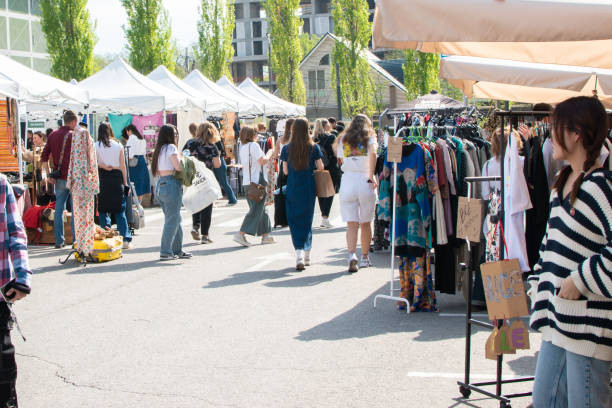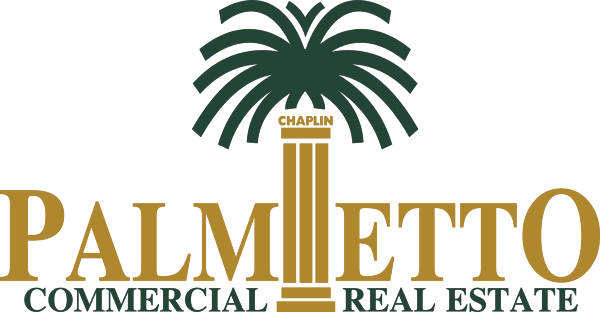Temporary pop-up events convert underutilized commercial properties into short-term activations that generate immediate rental income and minimize vacancy costs. Palmetto Commercial Real Estate, a Florence, SC brokerage with over 100 years of combined experience, supports landlords with commercial leasing and landlord representation for profitable pop-up activations. This guide defines pop-up shops, explains preparation steps, outlines legal and financial frameworks, describes tenant acquisition and management, and highlights South Carolina success stories. Landlords will gain actionable strategies to transform properties into flexible, revenue-driving spaces in the commercial real estate Florence SC market.
What Are Pop-Up Events and How Do They Benefit Commercial Landlords?
Pop-up events are temporary retail or experiential activations held in commercial properties to test markets and engage local audiences while creating short-term revenue streams. These events enable landlords to monetize vacant square footage, attract new foot traffic, and vet potential long-term tenants through low-commitment agreements.
What Defines a Pop-Up Shop or Event in Commercial Real Estate?
A pop-up shop or event is a short-term tenancy—ranging from one day to several months—where brands occupy retail or office space to showcase products, hold special events, or conduct market research. This flexible model allows landlords to adapt spaces quickly for diverse tenant needs and customer experiences, setting the stage for sustained property activation.
How Do Pop-Up Events Reduce Vacancy and Generate Revenue?
By filling vacant units quickly, pop-up events eliminate idle square footage and introduce new income without long-term commitments.
Immediate rental payments cover carrying costs
Ancillary fees (utilities, marketing support) boost overall returns
Foot traffic increases appeal for surrounding tenants
These revenue sources complement traditional leasing by stabilizing cash flow even in fluctuating markets.
What Are the Latest Trends and Market Statistics for Pop-Up Retail?
Pop-up retail is expanding rapidly, with the short-term leasing market projected to grow from $124.6 billion in 2024 to $477.9 billion by 2037.
Industry value: $50 billion and climbing annually
Vacancy reduction: up to 25% decrease in inactive spaces
Conversion rate: nearly 20% of pop-ups transition to long-term leases
These ps underscore the opportunity for landlords in commercial real estate Florence SC to leverage experiential activations for property optimization.
How Can Landlords Prepare Commercial Properties for Pop-Up Tenants?
Preparing a property for pop-up tenants involves upgrading core infrastructure and designing adaptable layouts that accommodate varied tenant requirements while preserving long-term asset integrity.
What Are the Essential Amenities and Infrastructure for Pop-Up Ready Spaces?
Successful pop-up spaces require critical systems to support tenant operations.
High-speed Wi-Fi connectivity
Reliable HVAC and climate control
Accessible restroom and ADA compliance
Flexible lighting and power distribution
Basic security measures (locks, alarms)
Equipping properties with these features ensures tenants can launch quickly and customers enjoy a seamless experience.
How Should Commercial Spaces Be Designed for Flexibility and Temporary Use?
Flexible design relies on modular elements and neutral finishes to enable rapid changeovers.
Mobile partitions and roll-out shelving
Blank-canvas walls with easy-clean surfaces
Standardized ceiling and floor grids for lighting and signage
These components facilitate swift installations and restorations, preserving appeal for both pop-up operators and future long-term occupants.
What Local Permits and Compliance Are Required for Pop-Up Events in South Carolina?
Landlords must verify zoning allowances and secure necessary approvals before hosting pop-ups.
Special use permit from municipal planning
Health department clearance for food or beverage events
Fire marshal inspection and occupancy certification
Understanding these requirements prevents delays and legal complications, paving the way for successful activations.
What Legal and Financial Considerations Should Landlords Know About Pop-Up Leases?
Navigating pop-up leases and financial terms requires clear agreement structures and data-driven pricing to balance risk and return.
What Is the Difference Between a Pop-Up Lease and a License Agreement?
A Pop-up Lease establishes a formal landlord-tenant relationship with exclusive rights, typically used for temporary retail or office tenancy.
A License Agreement grants revocable permission without creating tenancy rights, often used for short-term brand activations.
This comparison clarifies how legal status affects control and liability, guiding landlords to select the appropriate model.
What Are the Essential Clauses in a Pop-Up Lease Agreement?
Key clauses protect both parties by defining operational and legal parameters.
Term length and extension options
Rent amount, payment schedule, and adjustment triggers
Permitted uses and signage restrictions
Alteration and restoration responsibilities
Insurance requirements and indemnity provisions
Including these elements mitigates disputes and ensures smooth tenancy.
How Should Landlords Price Pop-Up Rentals for Maximum Benefit?
Strategic pricing reflects location, duration, and amenity value.
Base rent calculated per square foot for short-term terms
Percentage rent tied to event sales or foot traffic
Utility and service pass-through fees
Security deposit calibrated to potential risks
Adopting mixed-model pricing maximizes income while attracting quality tenants.
How Can Landlords Attract and Manage Successful Pop-Up Tenants?
Filling and supporting pop-up tenants depends on targeted promotion and efficient operations that maintain property condition.
What Marketing Strategies Effectively Promote Pop-Up Ready Commercial Spaces?
Landlords should highlight space features and audience potential through multiple channels.
Social media campaigns showcasing past activations
Email outreach to retail and event networks
Collaboration with local business associations
Featured listings on pop-up marketplace platforms
These tactics raise awareness and attract tenants seeking turnkey solutions.
Where Can Landlords Find the Right Pop-Up Tenants in South Carolina?
Combining digital and local resources yields a robust tenant pipeline.
Specialized short-term rental websites
Regional commercial real estate brokers
Community and chamber of commerce events
Local influencer partnerships
This multi-channel approach ensures access to diverse brands and entrepreneurs.
How Should Landlords Manage Tenant Turnover and Property Maintenance During Pop-Ups?
Operational efficiency preserves property quality and reduces downtime.
Standardized move-in/move-out checklists
Scheduled cleaning and repair protocols
Rapid-response maintenance team on call
Clear communication of responsibilities in lease documents
Consistent practices support smooth transitions and uphold asset condition.
What Are Some Successful Examples of Pop-Up Property Transformations in South Carolina?
Real-world case studies demonstrate tangible benefits of temporary activations.
Which South Carolina Commercial Properties Have Benefited from Pop-Up Events?
Historic storefronts in downtown Florence and vacant strip-center units near Myrtle Beach hosted seasonal fashion markets, artisanal food fairs, and interactive art exhibits that revitalized local foot traffic and community engagement.
How Have Landlords Measured Increased Revenue and Reduced Vacancy from Pop-Ups?
Landlords track key performance indicators to validate success:
30% reduction in average vacancy rates during activation periods
15% uplift in per-square-foot rental revenue compared to standard leases
10% increase in adjacent tenant sales attributed to pop-up foot traffic
Quantifying these metrics confirms the financial and placemaking value of pop-up strategies.
Landlords who adopt pop-up events transform static spaces into dynamic revenue engines while enhancing community vibrancy. By defining clear legal agreements, upgrading infrastructure, and executing targeted marketing, property owners can unlock new income streams with minimal risk. Palmetto Commercial Real Estate stands ready to support commercial landlords in Florence and beyond with leasing expertise and landlord representation for successful pop-up activations. Embracing this flexible model positions properties for sustained financial performance and long-term occupancy growth.




